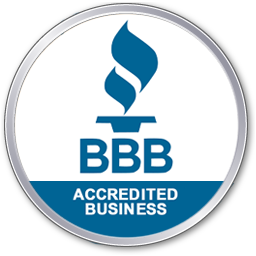

Mold is a common household issue affecting up to 70% of homes in Oregon. Even if your house is new, don’t think you’re not susceptible, as almost 30% of new or remodeled homes are affected by mold issues.
Most people don’t know they have a mold problem until they start seeing the evidence of it. Water spots on ceilings or walls, peeling paint, and musty odors are all signs that you might have a mold problem. If you suspect you have mold, the best course of action is to call in a professional for an inspection and mold remediation.
The right company can help you get rid of mold and water damage once and for all. That’s why we offer better alternatives to dry fogging, one of our most popular techniques that “environmental specialists” use in homes with mold; but according to standards set by the EPA, IICRC, and ANSI…it should never be applied without seeking professional guidance first and properly remediating mold from your home.
What is Dry Fogging?
Dry fogging for mold remediation is the process of using an aerosolized mixture of non-toxic disinfectant chemicals to prevent the spread of mold growth. The vapor is sprayed into the space where mold is present to prevent spores from escaping.
Dry fogging has been growing in popularity for mold remediation because:
- It works well in lessening mold problems
- It improves air quality
- It clears surface areas
- It’s quick and robust
- It’s environmentally neutral
However, there are still a number of issues with using this process for mold remediation that make it ultimately ineffective and against standards set by ANSI, IICRC, and the EPA.
Is Dry Fogging Effective for Mold Remediation?
Short answer: No!
While dry fogging is effective in preventing the spread of existing mold spores, it doesn’t fix the root cause of your mold problem. This means the mold will likely keep growing back and could even do so in a matter of days.
The dry fog also can’t penetrate hard surfaces, meaning it will only work on surfaces the vaporized chemicals physically touch.
The ANSI/IICRC mentions:
“Remediators should not mist or fog disinfectants or sanitizers in an attempt to kill mold in lieu of source removal. Remediators should employ adequate engineering controls to limit the release or spread of mold or spores within the work environment.”
ANSI/IICRC Standard for Professional Mold Remediation
Because of these reasons, dry fogging is meant to be used as a part of the mold remediation process rather than as a standalone mold removal solution.
Regulations & Standards for Mold Dry Fogging
It’s important to be aware of federal regulations and standards if you are considering using mold dry fogging in your home.
ANSI & IICRC Regulations
In the ANSI/IICRC Standards for Mold Remediation, they state on multiple occasions:
“Physically removing mold contamination is the primary means of remediation. Mold contamination should be physically removed from the structure, systems and contents…. Attempts to kill, encapsulate or inhibit mold instead of proper source removal generally are not adequate.”
ANSI/IICRC Standard for Professional Mold Remediation
As well as that “Fungicidal coatings and mold-resistant coatings should not be used in place of proper source removal of mold contamination, moisture control, and regular cleaning and maintenance, but can protect some materials from microbial growth.”
Environmental Protection Agency (EPA) Regulations
The EPA recommends that homeowners only use mold foggers as a part of a comprehensive mold remediation plan. This means that the foggers should be used in conjunction with other remediation methods, such as cleaning or removal of mold-infested materials.
The EPA recommends engaging professional mold removal help when:
- The mold covers a wide surface area (about 10 square feet or greater)
- There is extensive water damage
- Mold contamination exists within or near your HVAC/ventilation system
- Mold is caused by sewage instead of water
Mold Fogging & Cleanup Standards
The American National Standards Institute (ANSI) and Institute of Inspection, Cleaning and Restoration Certification (IICRC) have developed specific standards for the use of dry mold foggers. These standards include requirements for training, equipment and safety measures.
Both organizations recommend that mold foggers only be used by those who are familiar with these standards.
Best Solutions For Total Mold Remediation
- The first step in mold remediation is to identify the source of the moisture that is causing the mold growth. This can be a leaky pipe, flooding, or condensation. Once the source of moisture is fixed, the mold will stop growing.
- The next step is to remove the mold growth. This can be done by scrubbing surfaces with mold-killing cleaners, power washing, or HEPA vacuuming.
- This is where some people get mold removal wrong. Scrubbing surface areas with a mold-killing cleaner will only kill the mold on the surface. It won’t kill mold spores in the air or colonies that develop below porous surfaces such as drywall.
- Power washing and HEPA vacuuming in combination with scrubbing surfaces are more effective at removing mold as they remove mold spores from the air and surfaces.
- In addition, it’s important to dry wet areas and surfaces as quickly as possible to prevent mold growth. This can be done with a dehumidifier or by opening windows and doors.
- Repairing ventilation issues – Mold spores growing inside air vents can easily travel through the air you breathe. It is important to identify and remediate air ducts to prevent the spread of mold across other areas of your home.
- Finally, you should consider using mold-resistant paint or sealant on surfaces that are susceptible to mold growth. This will help to prevent future mold growth.
Why It’s Important to Test for Mold Often
Mold testing is important as it can help you to identify mold growth early. Mold testing can be done with a moisture meter, mold spore air sampling, or mold test kit.
Moisture Meter
A moisture meter is used to measure the moisture content of surfaces. If the moisture content is high, it’s an indication that mold is present.
Mold Spore Air Sampling & Test Kits
A Mold spore air test measures the level of mold spores in the air. Mold spore tests are completed by trained and licensed mold technicians according to ASNI and EPA methodologies. Mold test kits measure the levels of mold spores in a sample of dust.
It’s important to test for mold often, especially if you live in an area that is prone to mold growth. Testing for mold will help you to identify mold growth early so that you can take steps to remove it.
This is important even after mold remediation, as it is impossible to remove all mold spores from a home. Some mold spores will always remain and can quickly grow into colonies if the conditions are right.
Testing for mold often will help you to identify any new mold growth so that you can take steps to remove it before it becomes a problem.
Say No to Dry Fogging For Mold Remediation
When it comes to mold removal, dry fogging is ineffective and can even be harmful. Dry fogging does not remove mold from surfaces or kill mold spores in the air. Instead, call the professionals at Alpha Environmental to get rid of mold.
Our mold removal techniques will stop mold growth, improve air quality, and prevent future mold growth. We also offer mold testing services so that you can keep an eye on mold growth in your home.
If you think you might have a mold problem, don’t wait. Contact us now to get started on cleansing your home or business of mold.




